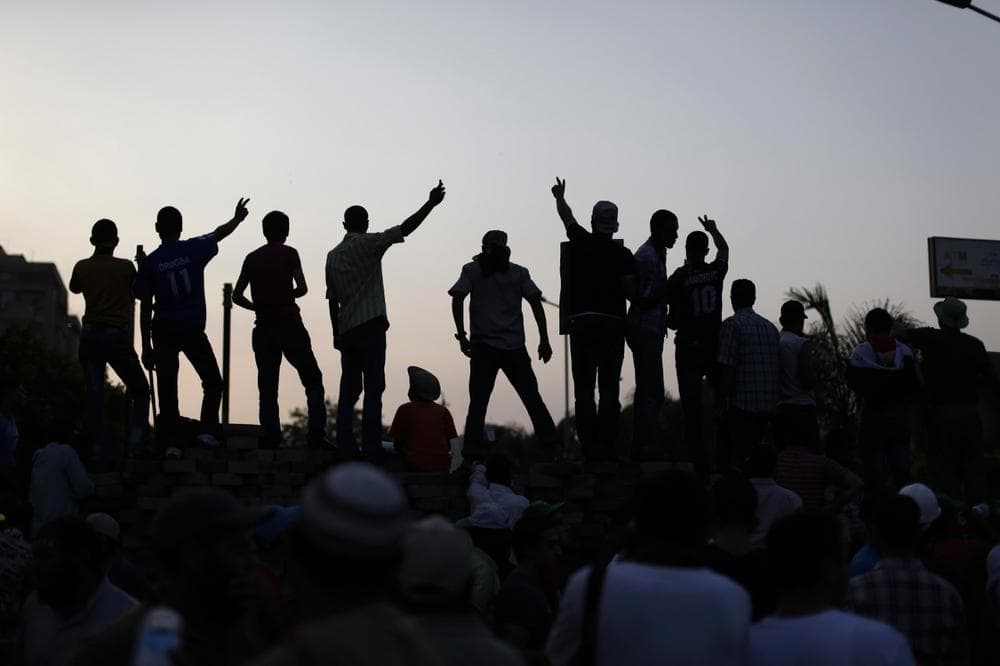Advertisement
Boston's Egyptian Youth: Two Years Later
Resume
In Cairo today, opponents of ousted Islamist president Mohamed Morsi occupy certain corners of the city. Morsi's supporters occupy others. No one is seeing eye-to-eye, and the country feels as fractured, if not more, than it was during its historic 2011 uprising.
But Egypt's military leaders also took a step forward after Monday's mass-killing of more than 50 Islamist protesters. The country's interim government has announced a six-month timetable for a return to civilian democracy, and appointed a temporary prime minister, Hazem el-Beblawy, a prominent Egyptian liberal economist.
Ramadan begins today. For Muslim Egyptians, the month-long ritual of fasting and purity, may be one of the few sources of solidarity remaining as the country struggles with crisis in this latest wave of the Egyptian revolution. Two years ago, at the height of the first Egyptian uprising, we spoke with a group of young Egyptians who were living in Massachusetts when former President Hosni Mubarak was thrown out of power. Then, they felt a surging sense of joy, possibility, hope, along with a little trepidation. Today, we've invited them back.
Guests
Ena El-Hadidy, student in English and biology at the University of Massachusetts Boston.
Hesham Hamoda, an attending psychiatrist at Children's Hospital and instructor in psychiatry at Harvard Medical School.
Habib El Magrissy, student in international business at Northeastern University.
More
The New York Times, "Egyptians who not long ago were protesting side by side, even members of the same family, now rely on different sources of information, offer widely divergent accounts of what caused Monday’s carnage and argue that they are the true defenders of the revolution that ousted President Hosni Mubarak in 2011. Rival camps both claim that the United States is offering concrete support to their opponents."
The Atlantic, "Egypt's revolution is in danger, as it has been at many turns since it burst forth in January 2011. Its best asset is people power and the creative, resilient activists who have gone to the streets over and over, and against three different kinds of regime so far. Its greatest vulnerabilities are the institutions of Mubarak's authoritarian police state, which have bided their time and are still pushing for a restoration, and the profound strain of reactionary thought that courses through certain powerful sectors of Egyptian society."
The Guardian, "It would be naive to overlook the drastic increase in crime since Hosni Mubarak, the dictator, was forced out of power in February 2011. Some 51 people were murdered in Cairo on Monday morning alone, during demonstrations against the removal by military force of Mohammed Morsi, Egypt's first democratically elected president. Yet there is something particularly disturbing about the rise in taharoch el jinssi – Arabic for sexual harassment – especially as it involves men of all ages and backgrounds."
This segment aired on July 9, 2013.